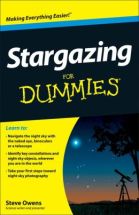Meteor Showers for 2011-2012: Ones to watch
With the Quadrantids meteor shower that has just past yielding around 100 meteors per hour in near-perfect New Moon conditions, which showers of the next two years will give us as good a display?
There are a few regular, dependable showers that can be relied on to put on a good show year after year, given a good Moon phases, so let’s concentrate on those:
Lyrids 2011
The Lyrids peak this year on April 21/22, only three days after the Full Moon, making conditions far from ideal. The ZHR is around 20, but under bright Moon conditions this will be much reduced, so that from the UK you might only see a few Lyrids per hour.
Persieds 2011
The Perseids peak on 12/13 August 2011 coincides exactly with a Full Moon, making this shower pretty much a write-off in 2011.
Orionids 2011
The Orionids peak occurs on 21/22 October 2011 just after the last quarter Moon, with the Moon rising a little after midnight, just as the meteor shower radiant is gaining height. Again, far from ideal.
Leonids 2011
The Leonids peak on 17/18 November occurs during a last quarter Moon, which unfortunately is smack bang in the direction of Leo, and so will obscure many of the Leonids in 2011
Geminids 2011
The Geminids peak on 13/14 December 2011 will likewise be completely obscured by an almost-full Moon in Gemini.
Quadrantids 2012
The Quadrantids peak on 3/4 January 2012 will feature a waxing gibbous Moon which won’t set until 0400.
Lyrids 2012
The Lyrids peak on 21/22 April 2012 is the first major shower peak in 15 months where the Moon is absent, meaning that you should get good views of this shower which has a ZHR of only around 20.
Persieds 2012
The Perseids peak of 12/13 August 2012 will feature a thin waning crescent moon that’s visible in the sky from midnight, obscuring some of the Perseids. Here’s my up-to-date guide to the Perseids 2012.
Orionids 2012
The Orionids peak on 21/22 October 2012 is pretty much Moon-free from around 2330, as the Moon sets.
Leonids 2012
The Leonids peak on 17/18 November 2012 will also be Moon free from early evening, and so presents an opportunity to see a few Leonids.
Geminids 2012
Rounding off this two year run of poor Moon conditions for meteor showers, we end with the Geminids on 13/14 December, coinciding wonderfully with a New Moon on 13 December, meaning conditions will be near perfect.


Oh well, nothing looks too promising in the near future. Thanks for the info – great site!
They installed new taller telephone poles with brighter lights on my street this year, and my neighbor has a new super bright street light in his yard. Alas! All chances of me seeing a shower on my property are now gone forever! I only see mag 3 stars and brighter.. :(
Unaware and uncaring people think more light equals more safety. I just keep wishing for a massive solar flare that blacks out power for at least one night; hopefully a perfectly clear, moonless night. Unfortunately, with my luck, that night will be clouded out and rainy, and my neighbors will all have stand-by generators to operator their freaking light bombs!!!
That happened during the north east blackout in 2004 i think. IT WAS WONDERFUL!
Man, I missed the shower this month… I guess I should have looked it up sooner..
just saw a shooting star in Stenhousemuir scotland about 2135
Bright meteor seen tonight 30/10/2012 at 20:15 GMT over Cambridge UK from east to west, duration 3 seconds.